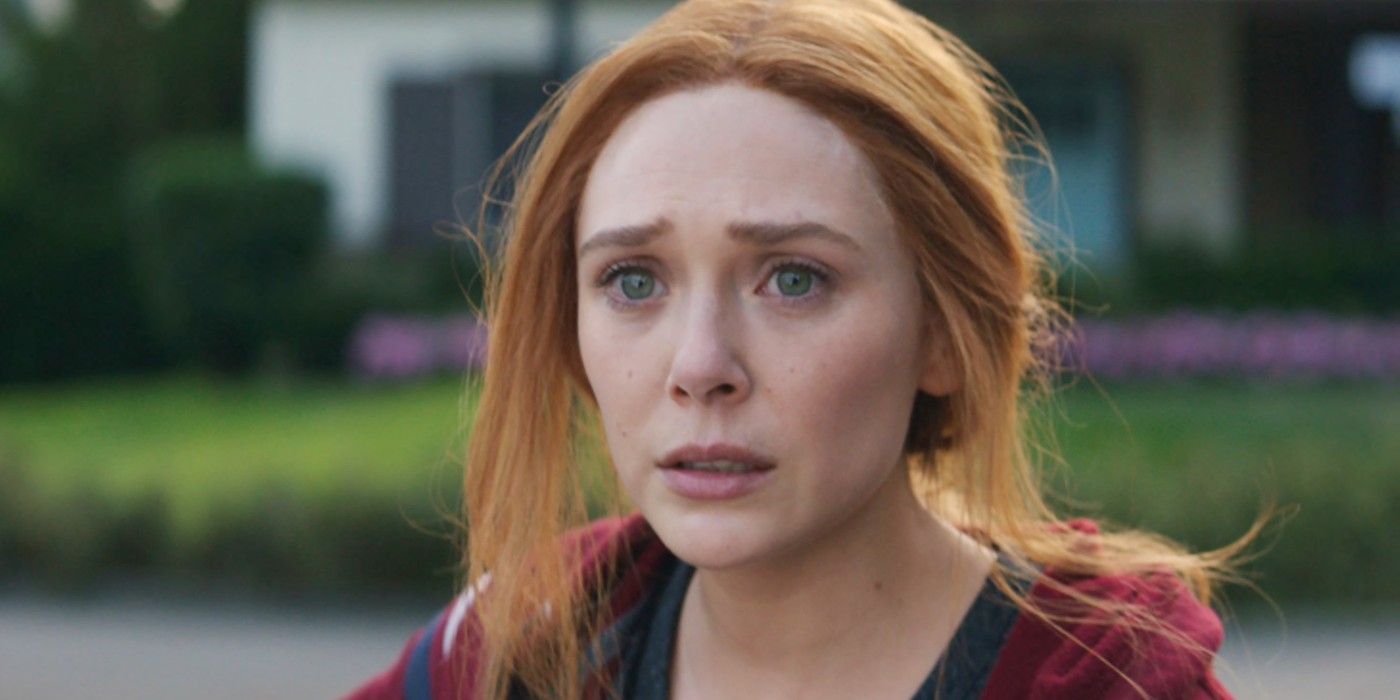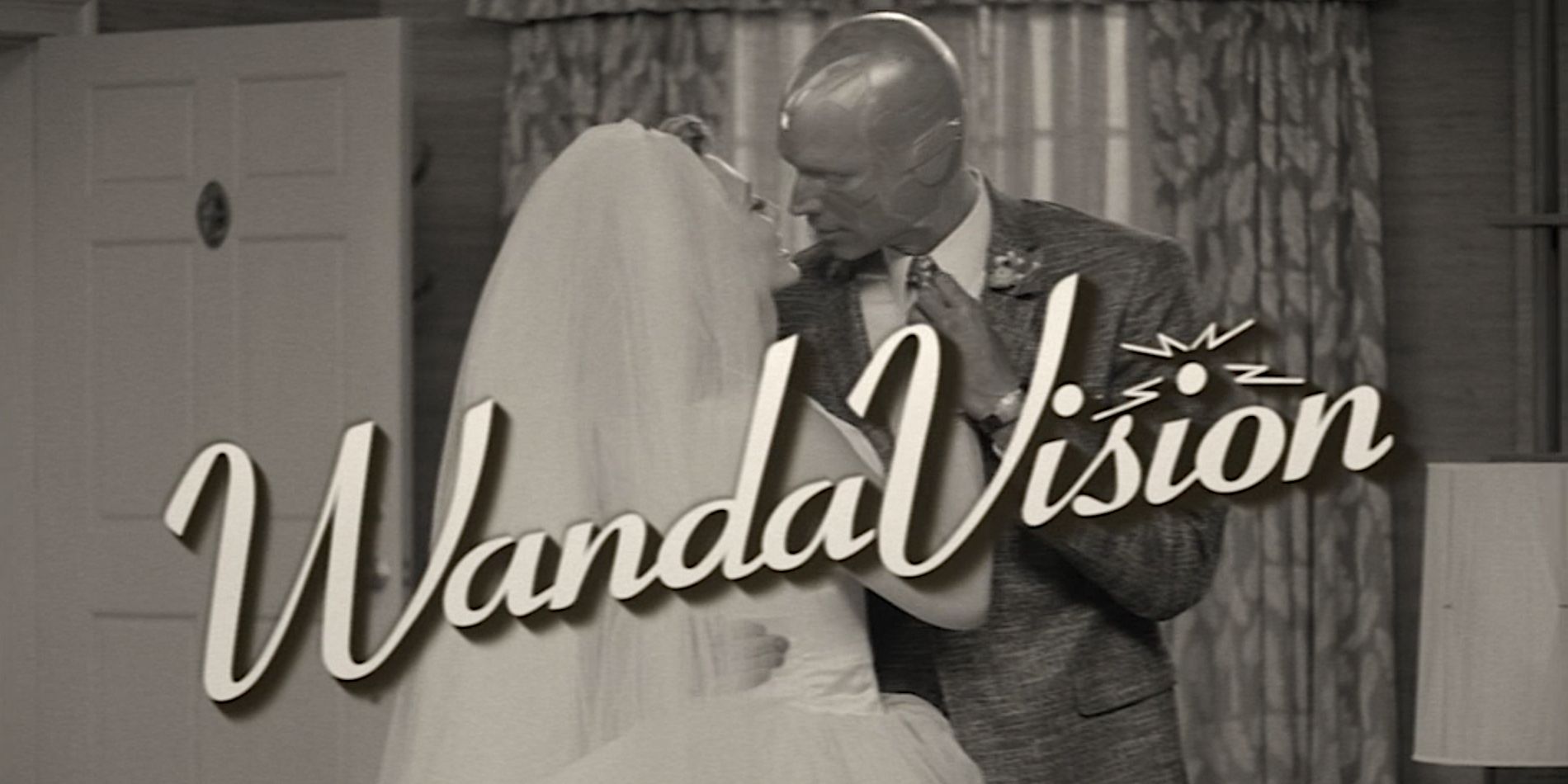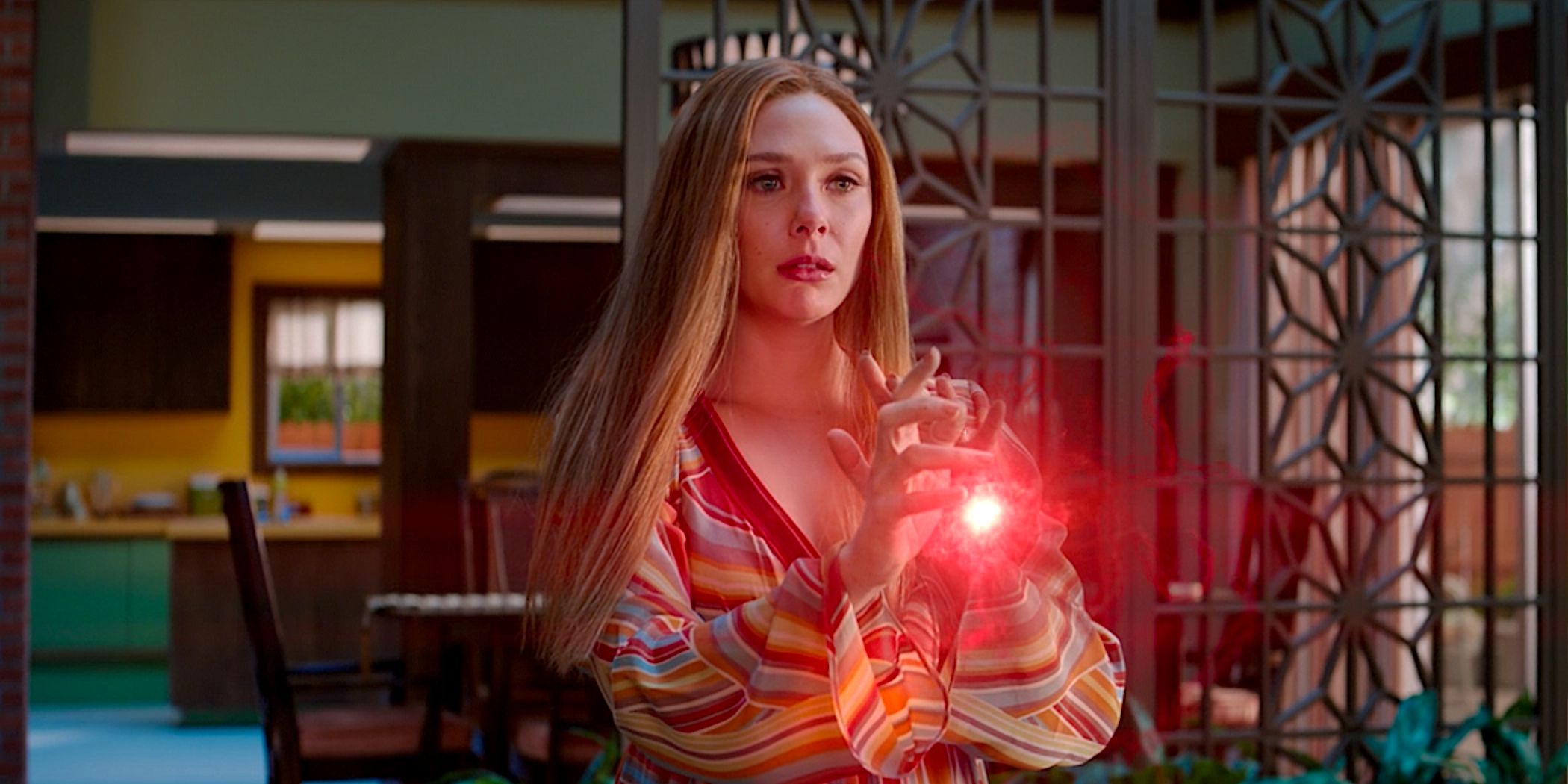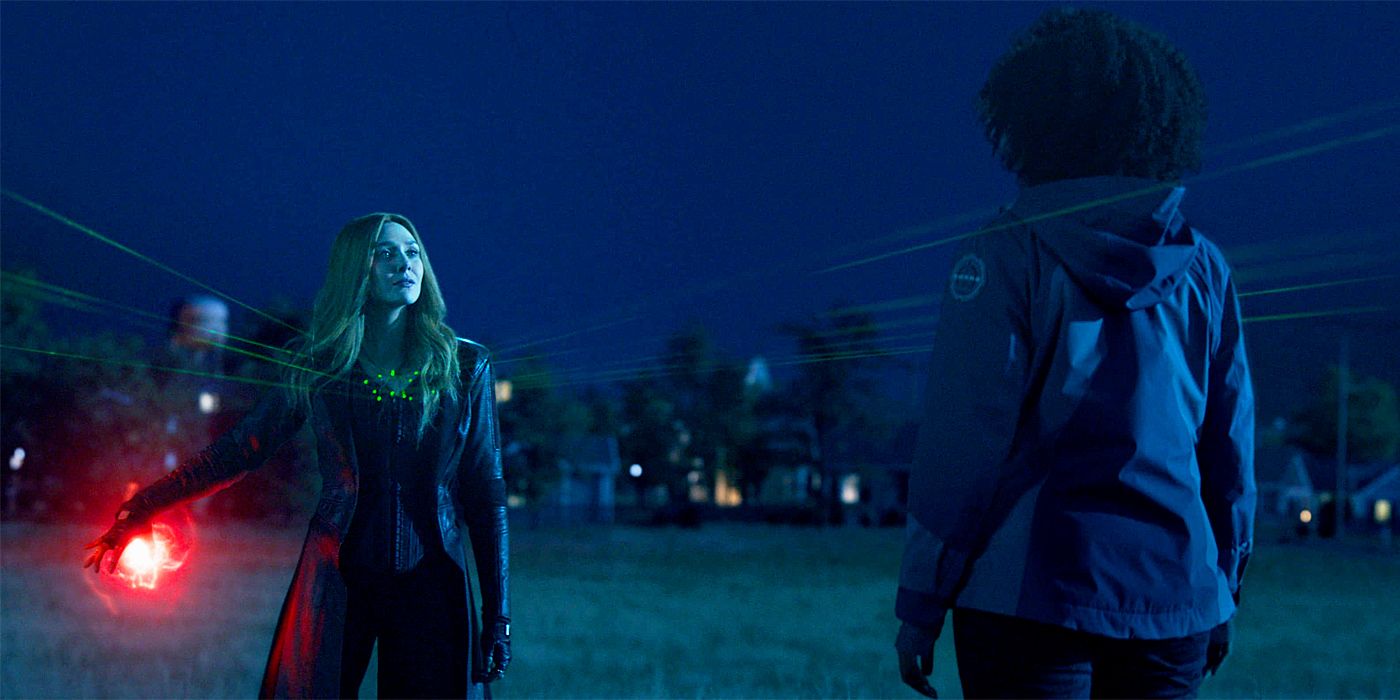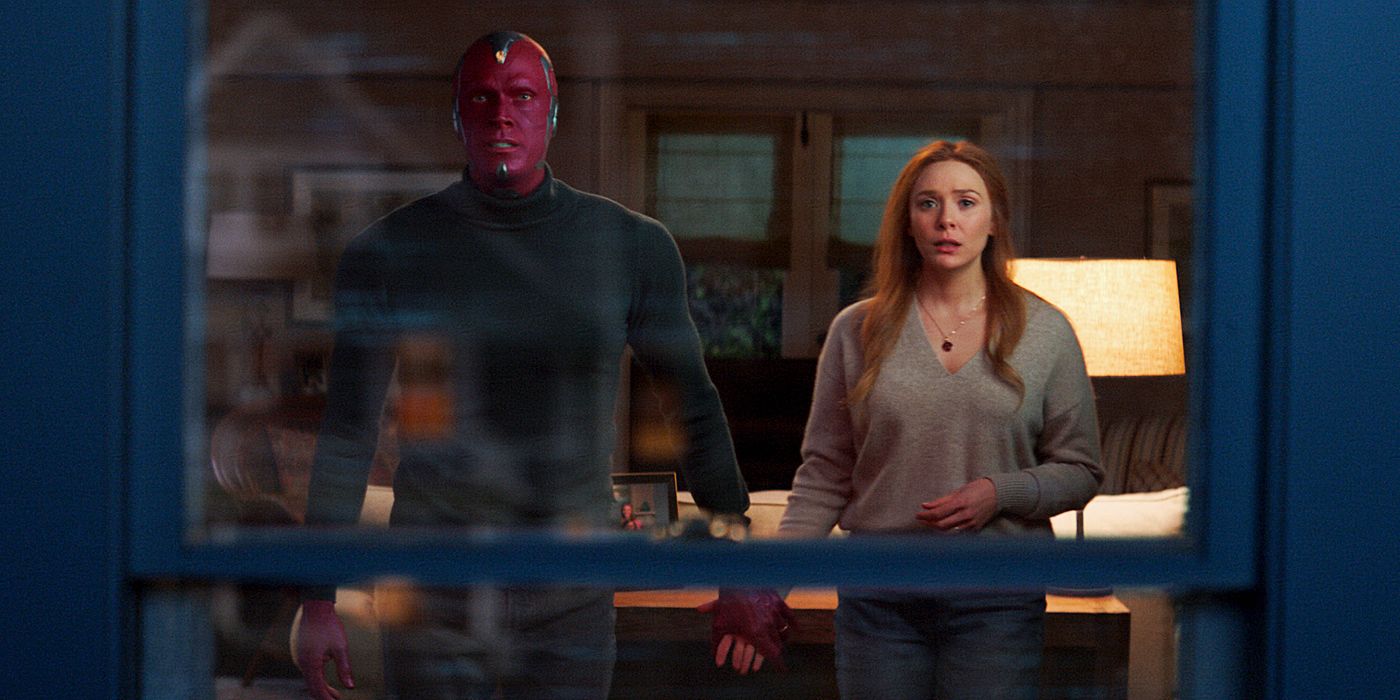WARNING: The following contains spoilers for WandaVision Episode 9, "The Series Finale," now streaming on Disney+.
Perhaps more than any other Marvel Cinematic Universe project, WandaVision sets out to tell its own unique story that puts much of the action-packed worldbuilding in the back seat as it confronts its thematic elements head on. To that end, it is a story with a point, and much of that point serves as a rumination on grief, the process of learning to live with it and accept it as an aspect of life. The now frequently-memed upon line, "What is grief if not love persevering?" is not only a legitimately powerful line of dialogue, but a distillation of the story's themes as a whole.
In fleshing these out, WandaVision breaks away from the typical action-oriented genre structure and instead, proceeds according to the five stages of grief. Known initially as the Kübler-Ross model, it has fallen out of favor in the psychological community. Nevertheless, it is an effective narrative structure that WandaVision weaves seamlessly into its story.
Denial
Denial is perhaps the easiest stage to identify. The Kübler-Ross model was initially developed with specific application to those mourning the loss of loved ones, and when the series opens, the audience knows that Wanda is mourning the loss of her love, Vision, from previous MCU ventures. This information is crucial to understanding what Wanda is going through during the series.
In the beginning, Wanda immerses herself in a self-constructed fantasy land of black-and-white, saccharine sweet sitcoms where she and Vision live happily ever after. Her powers essentially allow her to externalize the internal process many people go through when they grieve, refusing to accept a world in which something that means so much to them is absent altogether. It does not take long for the cracks to appear in Wanda's fantasy, and the more they do, the more she leaks into the next stage: anger.
Anger
Employed as a self-defense mechanism to guard against the threat to the fantasy created in the previous stage, anger helps the grieving party to feel in control of a world where they are losing power and to inflict the influence they do have on things that are small enough for them to manage. For Wanda, those threats add up as idle curiosities like the colorful toy helicopter and Dottie's bleeding hand, but they finally explode into outright anger when Monica confronts her about the outside world and the loss of Wanda's brother, Pietro.
Wanda's response is to banish Monica from Westview violently. Just as she willfully reset her reality earlier with the beekeeper, Wanda's anger guards the manageable world she creates for herself and allows her to take the steering wheel. But more and more, her degree of influence wanes, with instances like the stork, the twins' rapid advancement and S.W.O.R.D.'s infiltration of Westview serving as stark reminders of the limitations on her control. The less she can fight against those influences, the more she needs to resort to bargaining.
Bargaining
In the bargaining stage, the bereaved begins to accept that they can't willfully resist the changes of the world around them. At the same time, they are still far enough from acceptance that they believe there are mediating measures they can take to ease their suffering and hold on to their happiness. For Wanda, this becomes most clear when she storms out of Westview to confront S.W.O.R.D. following their attempt to assassinate her. She is more lucid than ever, back to using her familiar accent, and outright threatens the agents pointing guns at her to leave her alone and allow her to maintain her fantasy.
It comes at a critical point in the story where the audience is questioning just how conscious Wanda is of the changes around her and whether or not she is an active agent in shaping them. While it is obvious her powers grant her some control over Westview, there is a lingering mystery about the aspects which she can't control, and those aspects come to a head when her brother Pietro seemingly reappears at her front door. Though Wanda's self-doubt begins to plague her, Pietro's reappearance seems like a win in her negotiation with the universe and she readily accepts the concession for her happiness it seems to represent. At least, at first.
Depression
Eventually, there are just too many questions Wanda needs to ask herself and the illusion becomes too difficult to maintain. In recognizing her own limitations and inability to create a flawless paradise, her control begins to break down completely. Known as the depression stage, Wanda embodies many of its characteristics with familiar symptoms like lethargy, doubt and self-deprecation that eat away at her.
With her loss of control over herself comes a literal loss in control over her reality as objects shift and flicker between one state of existence or another. She makes breakfast with milk that goes from a plastic jug to a paper carton to a glass bottle, and as she questions all of this, Agatha reveals herself to grind out the remains of Wanda's self-esteem. Eventually powerless and forced to search through her own memories for meaning, Wanda reaches the rock bottom of her depression. But just as in the real world, it is there that she discovers a cherished memory with Vision that will finally allow her to move on to the final stage.
Acceptance
The line "What is grief, if not love persevering?" comes in Wanda's memory and soon after, she regains her resolve to fight back against Agatha. Finally uniting with her family and wielding the full force of her powers, Wanda not only overpowers the evil witch, she resists the temptation Agatha offers to live in blissful ignorance in the illusion of Westview. Realizing her responsibility to those she has hurt and the importance of accepting reality, Wanda finally comes to terms with her grief. With Agatha defeated, Wanda willingly gives up the love of her life and her children as she watches oblivion approach them, leaving her standing in an empty lot.
It is only the in the post-credits that Wanda takes time to herself isolated in the wilderness, seemingly content as she looks over a marvelous natural landscape and prepares a cup of tea. But at the same time, there is a second Wanda at work, mesmerized by her studies with an ethereal look, removed from reality. She hears the cries of her children and the series ends, leaving the audience to wonder which Wanda is left: the one who lives on in healthy acceptance taking time to herself, or the one secretly scrambling to regain the control she once had and possibly suffering delusions that return her to the start of the cycle?
Written by Jac Schaeffer and directed by Matt Shakman, WandaVision stars Elizabeth Olsen as Wanda Maximoff/Scarlet Witch, Paul Bettany as Vision, Randall Park as Agent Jimmy Woo, Kat Dennings as Darcy Lewis, Teyonah Parris as Monica Rambeau and Kathryn Hahn as Agnes. The entire season is available to stream on Disney+.

